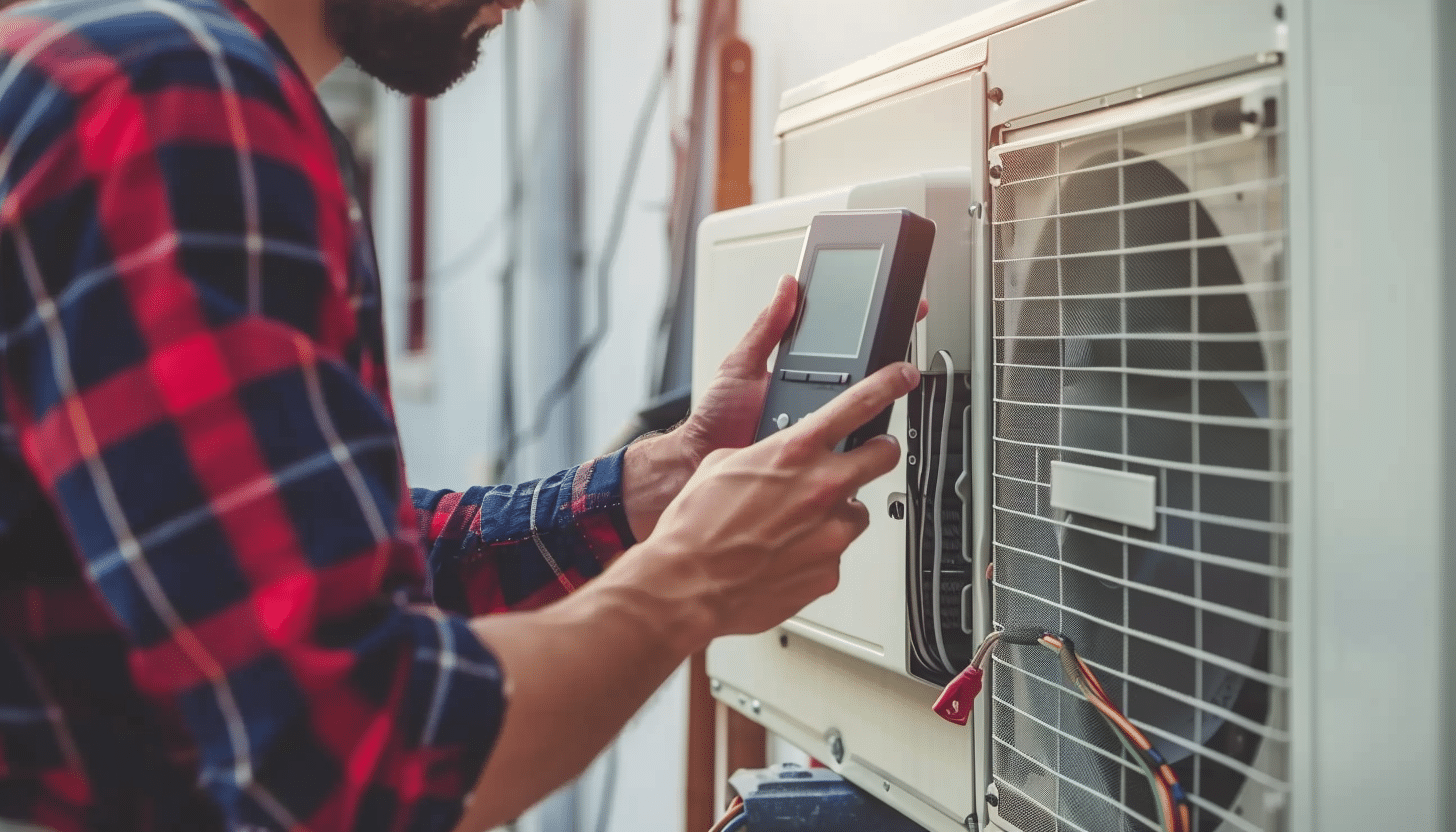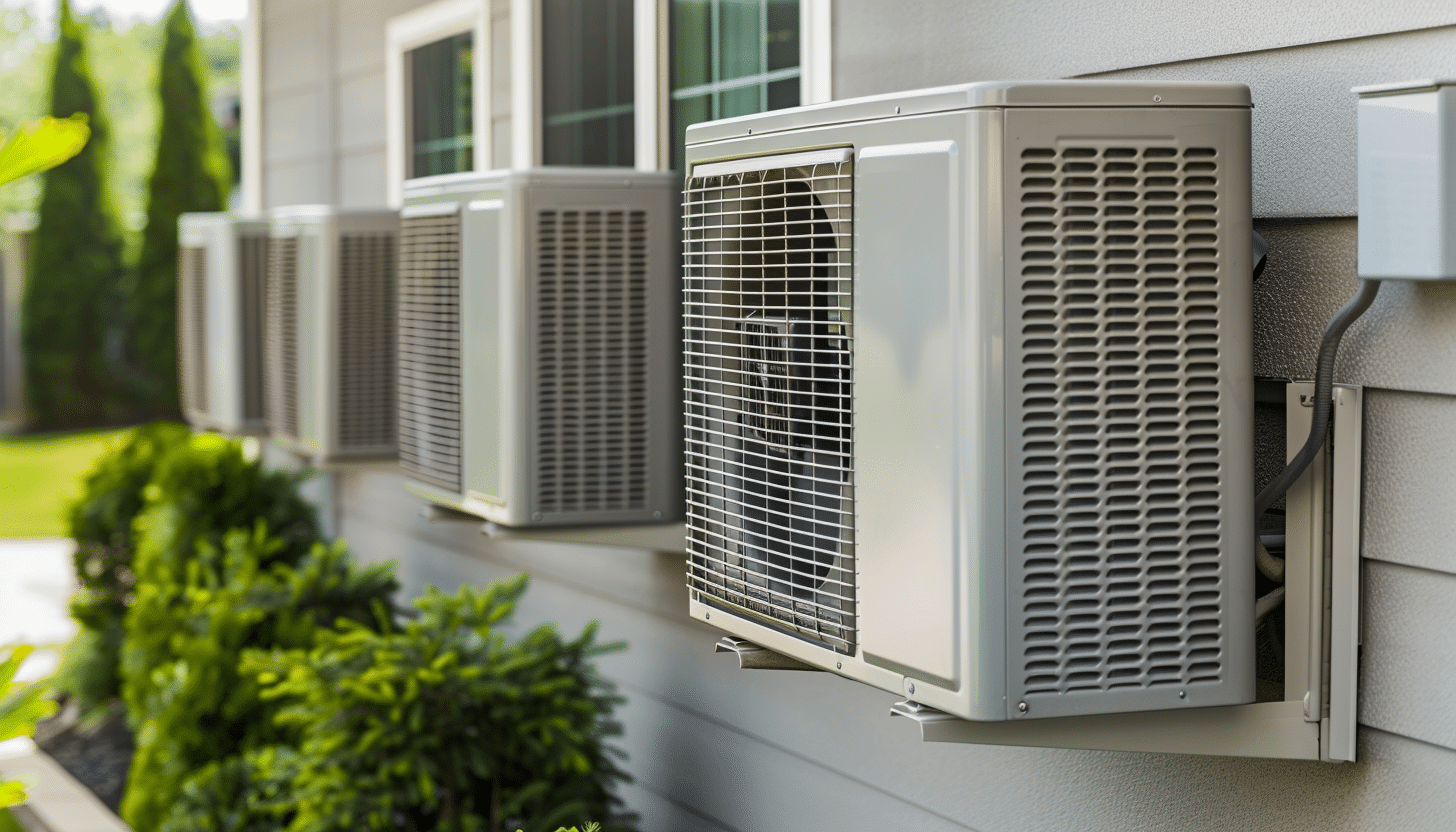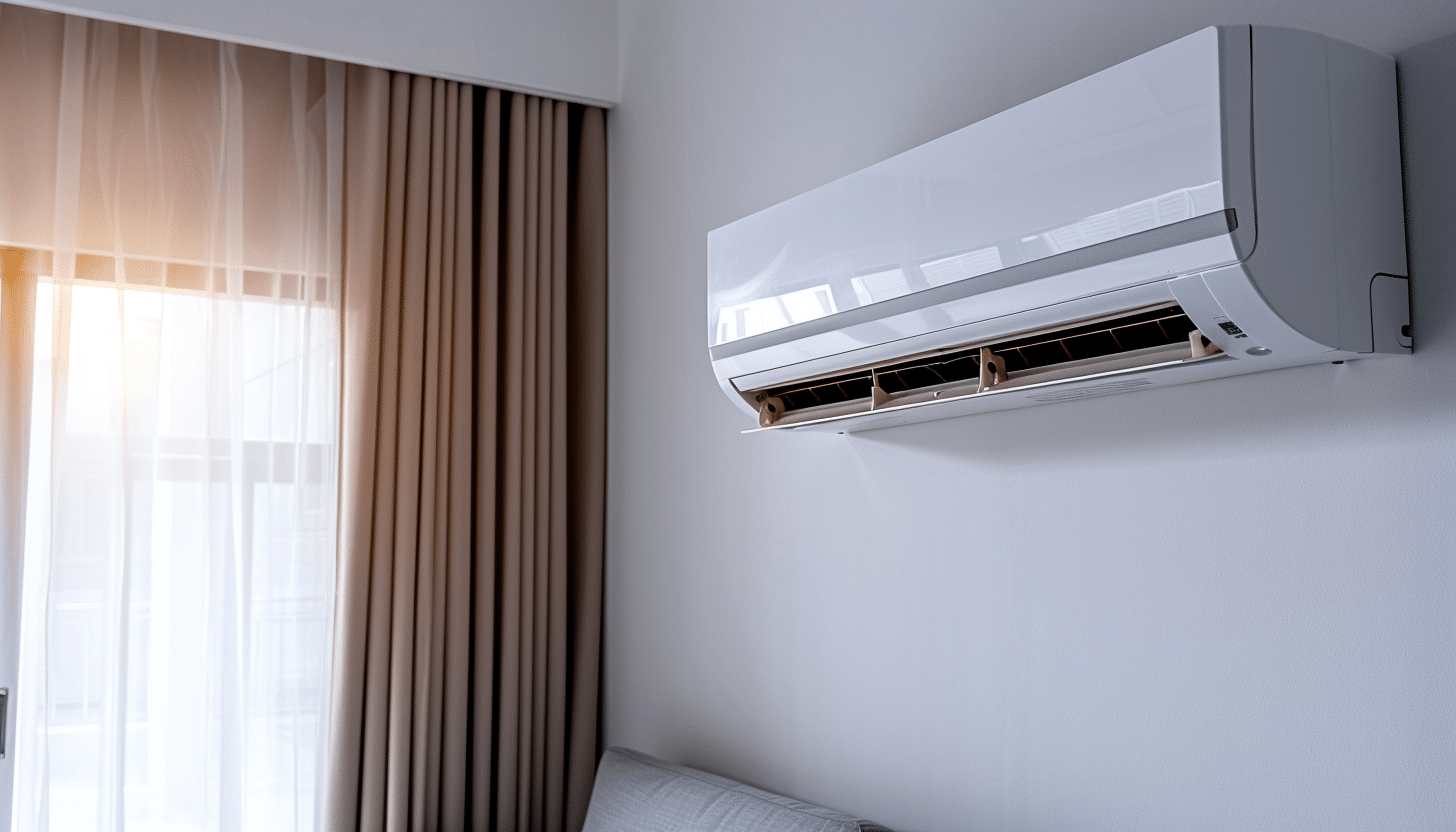Upgrade Your Home with the Latest HVAC Tech!
In today’s fast-paced world, maintaining a comfortable and healthy home environment is more important than ever. With advancements in HVAC (Heating, Ventilation, and Air Conditioning) technology, homeowners have unprecedented opportunities to enhance their living spaces. This comprehensive guide explores the latest HVAC technologies that promise not only to improve your home’s comfort but also to increase its energy efficiency and indoor air quality.
Understanding HVAC Systems
Before diving into the latest advancements, let’s clarify what HVAC systems encompass. HVAC systems are designed to provide thermal comfort and acceptable indoor air quality. These systems are crucial in maintaining a comfortable climate within your home, regardless of the season.

The Evolution of HVAC Technology
- Smart Thermostats: Unlike traditional thermostats, smart thermostats learn from your habits and adjust your home’s temperature accordingly, saving energy and reducing costs.
- Ductless Mini-Splits: Ideal for homes without traditional ductwork, these systems offer targeted heating and cooling, enhancing energy efficiency.
- High-Efficiency Systems: Modern HVAC systems boast higher SEER ratings, meaning they use less energy to provide the same level of comfort, significantly reducing utility bills.
Why Upgrade to the Latest HVAC Tech?
- Energy Efficiency: New HVAC technologies are designed to use less energy, which translates to lower utility bills and a smaller carbon footprint.
- Enhanced Comfort: Advanced systems provide more consistent temperatures and humidity levels, improving overall comfort.
- Better Air Quality: Modern HVAC systems contribute to healthier indoor air with features like built-in air purifiers and dehumidifiers.
Choosing the Right HVAC System
When selecting an HVAC system, consider the following:
- Size and Layout of Your Home: Ensure the system is correctly sized for your space to avoid inefficiency.
- Energy Efficiency Ratings: Look for high SEER (Seasonal Energy Efficiency Ratio) ratings for air conditioners and high AFUE (Annual Fuel Utilization Efficiency) ratings for furnaces.
- Features: Decide which features are most important to you, such as smart thermostat compatibility or air purification capabilities.
Installation and Maintenance
Proper installation and regular maintenance are key to maximizing the efficiency and lifespan of your HVAC system. Always choose a reputable HVAC contractor with experience in installing the latest technologies. Regular maintenance, including filter changes and system checks, will keep your system running smoothly.
Innovations in HVAC: What’s on the Horizon
The HVAC industry is on the brink of several transformative innovations that promise to redefine home comfort and energy management. Here are a few noteworthy technologies:
- Geothermal Heat Pumps: These systems leverage the stable temperature underground to provide heating, cooling, and hot water at remarkably high efficiencies.
- Solar-Powered HVAC Systems: By harnessing solar energy, these systems offer an eco-friendly solution to reduce electricity usage from the grid, cutting down on utility bills and carbon footprint.
- Smart Vents: These vents automatically adjust airflow to different rooms, ensuring even temperatures throughout the home and reducing energy waste.
Financial Incentives and Rebates
To encourage the adoption of energy-efficient HVAC systems, many governments and utility companies offer rebates and incentives. These can significantly lower the initial cost of upgrading. Homeowners are advised to research local incentives and calculate the potential savings when considering a new HVAC system.

Professional Installation: A Must-Have
The benefits of the latest HVAC technology can only be fully realized with professional installation. A certified HVAC contractor can ensure that your system is installed correctly, operates efficiently, and complies with all local codes and regulations. They can also provide valuable advice on the best system for your home’s specific needs.
Maintenance: The Key to Longevity
Regular maintenance is crucial for keeping your HVAC system running at peak performance. Here are some tips for homeowners:
- Schedule Annual Check-ups: Have a professional technician inspect and service your system annually.
- Change Filters Regularly: Clean or replace air filters every 1-3 months to maintain airflow and air quality.
- Keep Vents Unblocked: Ensure that furniture or drapes do not block air vents, allowing for proper air circulation.
Future-Proofing Your Home with HVAC Technology
Upgrading to the latest HVAC technology is not just about immediate benefits; it’s also an investment in your home’s future. As energy costs continue to rise and environmental concerns become more pressing, having a modern, efficient HVAC system will become increasingly important for comfort, savings, and sustainability.
Lifecycle of Modern HVAC Systems: What to Expect
A modern HVAC system is a significant investment in your home’s comfort and efficiency. Understanding the lifecycle of these systems helps you plan for the future and ensure your home remains a comfortable haven.
- Installation Phase: The journey begins with choosing the right system and ensuring professional installation. This phase sets the foundation for your system’s efficiency and longevity.
- Maintenance Phase: Regular maintenance, including seasonal tune-ups and filter changes, is crucial to keep your system running smoothly and efficiently. This phase significantly extends the lifespan of your HVAC system and helps avoid costly repairs.
- Upgrade Phase: As technology advances, consider upgrading components of your system (like thermostats to smart thermostats) to enhance efficiency and comfort without replacing the entire system.
- Replacement Phase: Even the best-maintained systems eventually need replacement. Innovations in HVAC technology mean that when it’s time to replace your system, you can choose from more efficient and environmentally friendly options.

Navigating the Selection Process: Tips and Tricks
Selecting the right HVAC system can be daunting. Here are some tips to help you make an informed decision:
- Assess Your Needs: Consider your home’s size, climate, and specific heating and cooling needs. This assessment will help narrow down the options.
- Energy Efficiency: Look for systems with high SEER (for cooling) and AFUE (for heating) ratings. These systems might be more expensive upfront but offer significant savings in the long run.
- Seek Professional Advice: A professional HVAC contractor can provide valuable insights into the best systems for your home and help you understand the trade-offs between different options.
- Consider Future Trends: With the HVAC industry evolving rapidly, consider future trends like smart home integration and environmentally friendly refrigerants when making your selection.
Installation and Beyond Ensuring Success
The benefits of your HVAC system hinge on proper installation and ongoing care:
- Choose the Right Installer: Ensure your installer is certified and experienced with your chosen system. Proper installation is crucial for optimal performance and efficiency.
- Plan for Regular Maintenance: Enroll in a maintenance program or set reminders for regular check-ups to keep your system at peak efficiency.
- Stay Informed: The HVAC industry continues to evolve with new technologies aimed at improving comfort and reducing environmental impact. Keeping informed can help you make upgrades that enhance your system’s performance and sustainability.
FAQs
How much can I save by upgrading to a high-efficiency HVAC system?
Savings can vary, but homeowners can expect to reduce their energy bills by up to 20% with a more efficient system.
Are smart thermostats worth the investment?
Yes, they offer significant energy savings by adjusting your home’s temperature based on your habits and preferences.
How often should I have my HVAC system serviced?
It’s recommended to have your system checked and serviced at least once a year to ensure optimal performance.
Can upgrading my HVAC system increase my home’s value?
Absolutely. A modern, efficient HVAC system is a highly desirable feature that can increase your home’s market value and appeal.
How long does a modern HVAC system last?
With proper installation and maintenance, today’s HVAC systems can last 15-20 years, depending on the type and usage.
Are there any smart home integrations for HVAC systems?
Yes, many of the latest systems offer smart home connectivity, allowing you to control your HVAC system remotely and integrate it with other smart home devices for enhanced comfort and convenience.
How do smart HVAC systems contribute to energy efficiency?
Smart HVAC systems optimize heating and cooling based on real-time data and user habits, reducing energy waste and lowering utility bills.
Can I retrofit my current HVAC system to make it more efficient?
Yes, certain upgrades, such as installing a smart thermostat or sealing and insulating ductwork, can significantly improve the efficiency of your current system.
What is the most eco-friendly HVAC system available today?
Geothermal heat pumps are among the most eco-friendly options. They utilize the earth’s stable temperature to provide heating and cooling with minimal environmental impact.

